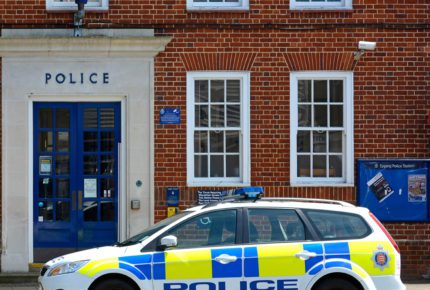

A pre-charge engagement refers to instructing a criminal defence solicitor to assist in your case before the police/CPS have made a charging decision. The time between being interviewed and charged can be stressful and anxiety-provoking. Often after you have been interviewed and bailed, it can feel as though there is nothing to do but wait. In the meantime, you may feel that important evidence to support your defence needs to be gathered. Because of this delay, which has only lengthened due to the impact of Covid-19 related issues, it has become more and more common for defendants to instruct a criminal defence solicitor at this early stage.
Your solicitor can play an important role by providing the CPS with information that could cast doubt on whether you committed the offence. Whilst the police are obliged to explore lines of enquiry both that tend to incriminate you and those that support a possible defence, resource limitations in both the police and the CPS mean that it can be much more effective for your solicitor to provide evidence supporting your defence to the prosecutor directly. In addition, your solicitor can put forward information that suggests that it may not be in the public interest to prosecute you, such as evidence of mental illness that you are suffering from, or evidence suggesting that the impact of the offence was minor. In this way, instructing a criminal defence solicitor at the pre-charge stage can have a significant impact on the outcome of the prosecution against you. It could even lead to your case being discontinued before court.
What can your criminal defence solicitor do during the pre-charge stage?
The pre-charge stage refers to the time after you have been arrested, but before you have been charged. Previously, no public funding was available for defence representation during this time. However, due to several high profile cases thar collapsed late on in proceedings due to disclosure failings by the CPS, the law has been changed to make Legal Aid available during this period of time. This change in the law offers additional protection to defendants by allowing them to begin preparing their defence earlier, before important evidence has been lost due to the passage of time.
Pre-charge engagement allows your criminal defence solicitor to highlight evidence that may be relevant to your defence to the CPS. For example, your solicitor can make the CPS aware of potentially relevant lines of enquiry, such as witnesses who should be approached. Your solicitor can also provide access to medical and digital records that may be of relevance to the enquiry.
These days it is common for vast swathes of digital disclosure to be available both in support of the prosecution’s case, and in support of the defence. For example, WhatsApp records going back several years may be disclosed. In these circumstances, it is impossible for the investigating officer or prosecutor to review everything, so your solicitor may be able to suggest relevant keyword searches to support your case. Your solicitor can also make submissions in respect of expert evidence that may be of probative value to the case. Instructing a criminal defence solicitor at the pre-charge stage gives you more influence in respect of how the prosecution’s case develops.
What disclosure must be provided at a police interview?
Prior to charging, the police are not under an obligation to disclose all of the evidence in the case to you. However, enough information must be provided to the suspect so that they can understand why they have been deprived of their liberty, the allegations against them, and the reason that they have been arrested. This is known as pre-interview disclosure.
If the police fail to give you sufficient pre-interview disclosure, they may not be able to rely on adverse inferences (i.e. your failure to mention key information relevant to your defence during your police interview). This is because you cannot be expected to provide a coherent defence if you do not fully understand the allegations against you.
Pre-interview disclosure is usually provided using the MG6A form. According to Home Office guidance, this must include:
- The nature of the suspected offence
- A broad summary of the evidence including the number and identities of those involved and the place and time where the alleged offence was committed
- Why the arrest was necessary
- If the defendant has previous convictions or bad character, the legal representative should be informed of this ‘if appropriate’ however they should not be given a copy of previous convictions
- If the police wish to question the defendant on documentary evidence, they should provide a copy of the evidence for the defendant and their legal representative to look at
- Pre-interview disclosure should not include copies of intelligence reports
Guidance to the police recommends that pre-interview disclosure must be detailed enough for the purpose of the interview, but it should not be too detailed and lengthy because of the time limitations in which the defendant can be kept in custody and the fact that the defendant must be given time to read what is provided.
Where the suspect is not legally represented, the police must provide enough information so that the suspect can decide if they want to instruct a legal advisor. If once you have seen the pre-interview disclosure, you decide that you would like a lawyer to be present, you have the right to wait until your police station representative arrives before going ahead with the interview.
Based on the pre-interview disclosure, your legal advisor will be able to discuss the best approach to answering the questions in the police interview with you. For example, where the evidence against you is strong it may be best to answer questions fully, whereas if it is weak, remaining silent may be a safer option.
Does the CPS have to disclose all evidence to the defendant?
When a criminal case is being prepared for trial, the CPS is obliged to share with the defence any material or evidence that could potentially undermine the prosecution case or assist the case for the defence. This could include information from the alleged victim or the suspect’s mobile phone, such as text messages and call records. Note that this disclosure obligation does not kick in at the pre-charge stage; it only applies once proceedings come before the court.
For serious offences, it is usually the role of the prosecutor to decide whether to lay a charge. Before charge, it is down to the police to disclose all information that they believe is ‘relevant’ to the prosecutor. The prosecutor will consider this information and decide whether to initiate a prosecution. There have been many cases where important information has not been disclosed by the police to the CPS, because the police do not consider it relevant whereas the defendant’s defence solicitor and the court take a different view.
In some cases, this can lead to the prosecution collapsing where important disclosure is only disclosed at a very late stage in proceedings. Instructing a criminal defence solicitor at an early stage can help ensure that relevant disclosure is provided at an early stage, as your solicitor can make the CPS aware of relevant material.
What happens if evidence is not disclosed?
Disclosure is often delayed, but what happens if the trial date is looming and important information that is relevant to the defence’s case still has not been provided? Defence statements must be carefully written to make it clear what the defence’s case will be. This will help highlight to the prosecution what material they are under an obligation to disclose.
Where key disclosure is missing, and defence statements have been disclosed, the defence can make an application to court known as an application for specific disclosure where they state what information is missing and required. For example, this could be CCTV footage for a certain time period, or cell tower data in respect of your alibi. This application is made under Section 8 of the Criminal Procedure and Investigations Act 1996 (CPAIA).
Another option is for your defence team to apply to stay the prosecution on the basis that continuing with the case in the absence of key evidence would be an abuse of process of the court.
Where a defendant is convicted in the absence of key disclosure being provided to the court, the defendant can appeal to the Court of Appeal. This has led to some convictions being overturned on the basis that they are unsafe.
Where to get further help?
If you have been arrested but not yet charged, you are entitled to legal representation. You are not obliged to use the same firm that represented you during your police interview. At Stuart Miller Solicitors, no case is too big or too small for us. Our expert team of solicitors will ensure that the CPS investigate all lines of enquiry relevant to your defence. Contact us for a no obligation consultation today.

